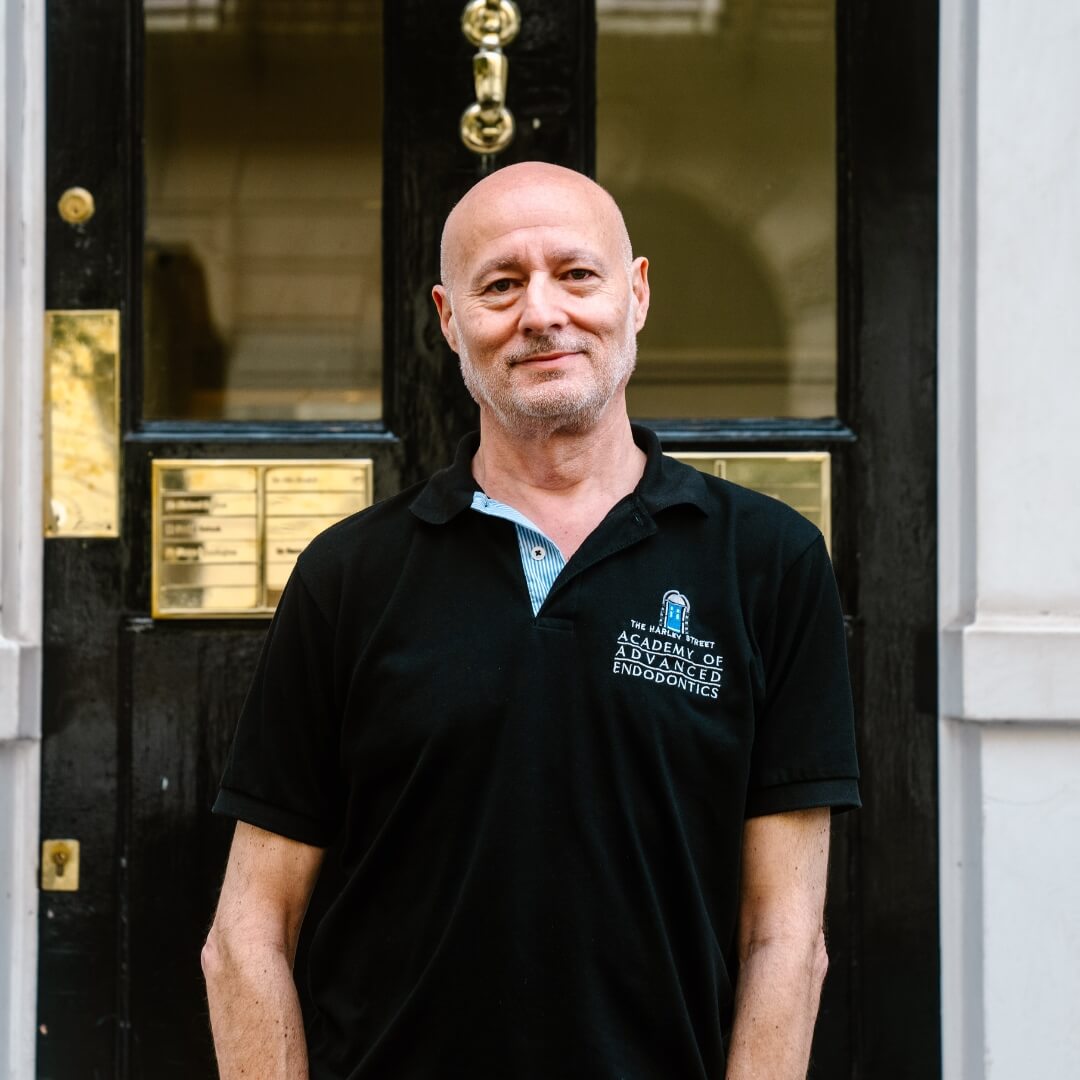Patients often ask me how I landed up becoming an endodontist. Did I always want to do this?
In fact, the answer is quite complex and one I try not to ask myself too often to perhaps shield myself from the disappointment of being somebody I never set out to be.
Like most children, I wanted to be something exciting, and I spent most of my younger years imagining myself as a fighter pilot, living fast on adrenalin, my speed of thought and reflexes. Although I did briefly join the Israeli Air Force, my speed of thinking and reflexes were not quite what it needed, and I landed up in dental school.
My other imagined career was saving lives as a doctor. This was a dream I could not realise due to a rather complicated family religious doctrine that a priest (for that is what I am) cannot be in the presence of a dead body. My mother felt it more appropriate that I use my science-based natural intelligence and manual dexterity in dentistry. So like a good Jewish boy I listened to my mother and drifted into it without much thought.
I was always attracted to the idea of being the best at whatever I did, and specialisation was my aim even before I finished dental school. There was a definite attraction to work with young people, bringing about life-changing transformations in their smiles through simple wires and appliances by becoming an orthodontist. This somehow also got lost in the fog of ambition and I landed up doing something I had never dreamed of: becoming an endodontist and saving teeth. Endodontists work with mostly older patients, doing highly esoteric and potentially painful things inside teeth that no-one can ever understand or truly appreciate. Really the very opposite of orthodontics.
I spent many years acquiring the necessary qualifications to become a specialist, then honing my skills through part-time private practice and as a clinical lecturer, then head of endodontic continuing professional development at the Eastman UCL for over 15 years. It was always my aim to use my alternative skills in computing and electronics to improve the way in which I did my endodontics. For my MSc thesis, I designed and built a red and infra-red probe to act as a photoplethysmogram to detect blood flow in a tooth, a vitally important diagnostic test in endodontics. Unfortunately, it didn’t work quite as well as I had hoped, but I still passed with distinction.
As an early adopter, I had started programming computers at an early age, first using a Sinclair ZX81 and moving on to BBC BASIC. I read in the obituary of Harry Allred (British Dental Journal, 2013), the Dean of the Royal London Hospital Dental School where I studied, that together with Fred Smales and Stuart Morgenstern, he designed and implemented the first networked computer system in any dental school in Europe and possibly the world. Well. I was therefore the first person in Europe and possibly the world who hacked a dental school networked computer system, sending rude messages about the lecturers across the screens of the clinic, to the amusement of patients and students. Until now, they never knew who did it.
A possible better use of these skills was that I wrote software to help run the new patient waiting lists at the Eastman and a database project to record examination data in a logical manner for the students, while being able to use the data for research purposes. This eventually morphed into cloud software and EndoBiz, a complete clinical notes program completed in 2013 and still being used in the Academy in Version 4.
My love of technology and how it can be used to improve how we treat our patients – and improve outcomes – continues to inspire me, and it is the reason the Academy has never sat back and just done things the way they were originally taught. We want to disrupt and we want to innovate. To always find better ways to achieve our treatment objectives.
The Academy was started in 2014 as the maturation of my private endodontic practice originally started in Chelsea later moving to Harley Street. I left the Eastman after designing and achieving university accreditation for the UCL Certificate and Diploma in Endodontics – at the time, a groundbreaking part-time course for general practitioners. The certificate had run successfully for a few years and I wanted a new project without the chains of university administration. I wanted to teach more of the innovations that I was using in practice and which were coming to our speciality, together with building a team of like-minded endodontic specialists offering our patients the best experience and outcomes possible. I had the privilege of teaching David, Irene and Stella at the Eastman as postgraduates and sought them out to work with me after they qualified.
After 40 years, I still feel the need for a higher ambition to save teeth wherever possible, and to explain the complexities of how it can be done to both dentists and patients. To do it brilliantly and painlessly continues to drive me forward in an almost obsessive manner.
A dear patient who had just come from an appointment with a friend of mine working next door in the London Oncology Centre said to me, ‘David is saving my life and you are saving my tooth’.
I felt rather hollow and insignificant, particularly considering my original ambitions. I am proud that two of my children have not followed me and are saving lives as medics.
But as David replied when I told him what our patient had said, ‘You will probably save her tooth, but I won’t save her life.’
Maybe that’s why I do it.
